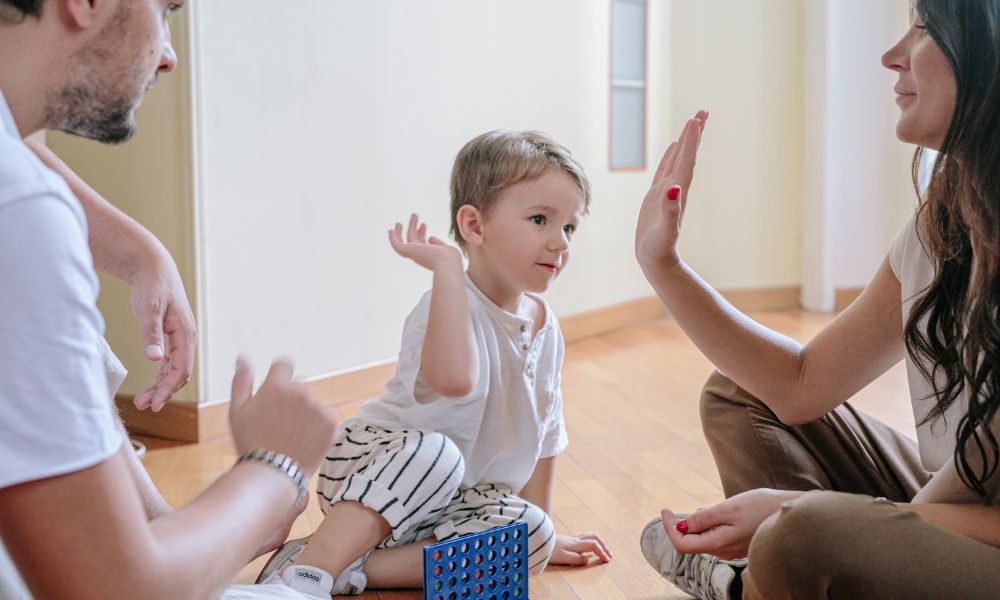
22 Jun What Makes ADHD Symptoms Worse in Kids at Home?
THINGS YOU’RE DOING THAT COULD BE MAKING YOUR CHILD’S ADHD WORSE

What Makes ADHD Symptoms Worse in Kids at Home?
ADHD is a complex condition that often requires a multifaceted approach to treatment. So, if your child has ADHD, you’re probably already doing your best to help them feel better. But are some things you might be doing that could make it worse?
As it turns out, there could be! Everyone’s experience with ADHD differs; the same goes for how other treatments affect them. What works for one kid or adult might not work for another. That is why it is important to know what may make your child’s ADHD symptoms worse so you can make adjustments as needed.
Read on to learn more about each and get tips on making changes to help your child manage their condition better.
Overstimulating Your Kid or Student
Just like all parents out there, we aim to give our kids a lot of good experiences and activities. But we all need to understand that if our children have ADHD, giving them too many activities to stimulate them might be counterproductive and may negatively impact their growth.
Overstimulation can cause kids and students with ADHD easily overwhelmed or anxious. It can also lead to behaviors that are disruptive or hard for them (or you) to control.
Simple ways you can help prevent overstimulation include:
- Limiting the amount of technology available at home—turn off the TV, stay away from video games, and keep tablets locked up when not in use.
- Managing noise levels—make sure that sound levels are comfortable for your child (keep it low!) and have them wear noise-canceling headphones in especially noisy situations.
- Monitoring their physical activity—keep them active but don’t let them overdo it – plan limited amounts of physical activity throughout the day, and ensure they get plenty of rest.
Taking these steps will ensure that your child remains in a state where they can stay focused, relaxed, and well-managed – setting the stage for success!
Subjecting Your Child to Emotional Stress
It is never easy to see your child struggling to manage their ADHD, but how we respond to that struggle is key. Subjecting your child to emotional stress can exacerbate the symptoms and make it more difficult to process everything around them.
Stress in the home environment can manifest in several ways, including speaking negatively about them, comparing them negatively with siblings or peers, or using emotionally loaded language (shouting, name-calling). These behaviors can strain the relationship between you and your child and make it harder for them to communicate their needs.
Parents of children with ADHD need to remain consistent in their responses. If emotions are running high, take a moment to think and assess the situation before responding. Calmly establishing boundaries avoids further stress and encourages positive behavior from your child.

Practicing Inconsistent Discipline
Another thing you might be doing that is making your child’s ADHD worse is practicing inconsistent discipline. When disciplining children with ADHD, having a set of consistent rules and expectations is key. Doing so will help them focus and understand what behavior is acceptable and what is not.
Now that you know these, there are some things to keep in mind:
- Ensure your child understands the rules, expectations, and consequences each time before any disciplinary action is taken—this will help avoid confusion.
- Always follow the agreed-upon rules and consequences, building trust and encouraging cooperation.
- Give appropriate rewards when your child acts appropriately—it reinforces the desired behavior and helps create a positive environment.
- Remain consistent in your response, even if it’s something they’ve done multiple times before—inconsistent discipline breeds confusion and distrust in the relationship.
Inconsistent discipline can have negative implications for children with ADHD, leading to confusion, impulsive reactions, frustration, or an inability to focus on the tasks at hand. Therefore, practicing consistent disciplinary measures goes a long way in helping children with ADHD stay focused while still allowing them the freedom to express themselves authentically.
Lacking a Consistent Daily Routine
A consistent daily routine is essential for helping your child with ADHD manage their symptoms. Your child can feel lost and confused without a dependable schedule, leading to more outbursts and aggression.
Establish a Routine
To give your child structure and security, you should establish a daily routine that includes time for meals, play, schoolwork, chores, and leisure activities. Keeping the same everyday way is important for helping children with ADHD stay focused, organized, and on track.
Be Flexible
It’s important to remember that being rigid with the routine isn’t always best — parents should be flexible when planning family activities or outings that may require modifying the overall schedule. Adjusting the schedule from time to time allows children with ADHD to be successful in managing their symptoms while still having fun.
Having a consistent daily routine helps children with ADHD better manage their symptoms because:
- It provides a structure that aids in focusing on tasks by breaking them down into manageable parts.
- It helps reduce stress through the predictability of events throughout the day.
- It lessens distractions by creating boundaries around leisure activities.

Not Giving Your Child Opportunities to Burn Energy
Kids can be a handful — that is just part of being a parent. But if you have a child with ADHD, you may need to take another step to ensure that your child can express their energy healthily.
It’s important to recognize that physical movement is essential for kids with ADHD — it helps them burn off extra energy and remain focused on tasks. Your child might struggle with hyperactivity, restlessness, or impulsive behavior without the right exercise.
Ways to Make Sure Your Kid Gets Enough Activity
➡ Create incentives for physical activities: If your child loves the idea of competitions and rewards, then create different challenges and goals for them each day. It could be something simple like 10 jumping jacks or a mini-marathon around the backyard.
Allow your child some screen time — but make sure it’s active screen time: Play a dynamic video game together or even find an interactive app that requires the user to move around to progress.
➡ Incorporate more physical activities into everyday life: Do daily chores into physical tasks; this way, they can make progress while having fun too.
Remember — it’s all about allowing your kids to burn off some energy while staying focused and engaged in healthy activities. Try other things out until you find something they love doing!
Not Helping Your Child Develop Strong Organizational Skills
Did you know that failing to help your child develop strong organizational skills can make their ADHD worse?
It’s true—not helping your child with this critical life skill can lead to ADHD symptoms, like difficulty focusing and staying on-task, because they won’t have the necessary tools to help keep them organized.
Here’s what you can do:
- Model organization-lead by example and be organized yourself. Then talk to your child about how you stay organized so they can learn from you.
- Get your child a planner to keep tabs on their activities, which tasks need to be done, and when. It might take some training, but it’ll soon become second nature with consistent reminders.
- Make sure they clean up after themselves and their playtime, too—it might seem like a simple task, but clutter affects the brain negatively when it comes to focusing and staying on-task.
- Teach them basic filing skills, such as going through papers and organizing them into folders or filing cabinets for quicker access later on when needed.
- And lastly, encourage self-reflection by having them evaluate their organizational skills periodically so that improvements or tweaks can be made when necessary for better results.
- These techniques are great for developing strong organizational habits and managing ADHD symptoms over the long term.
Conclusion
When it comes to managing your child’s ADHD, there are lots of practices you can do to help your kid cope with their symptoms. It’s important to remember that ADHD is a condition that has to be managed, not cured.
That said, by addressing the underlying causes of your child’s ADHD, such as overstimulation, emotional stress, inconsistent discipline, and lack of a consistent routine, you can help to manage the symptoms and make your child’s life more manageable.
By being aware of the things that can make ADHD worse and by taking steps to eliminate those sources of stress and overstimulation, you can help to make life a little less chaotic for your child – and you. With the right strategies, you can give your child the tools and support they need to live a better life.
In this article, we will find out what makes ADHD symptoms worse in kids at home: overstimulation, emotional stress, inconsistent discipline, and lack of a consistent routine.
Craig Selinger
Latest posts by Craig Selinger (see all)
- Psychotherapy and Support Services at Cope With School NYC - April 12, 2024
- NYC Parents of Teens Support Group - April 8, 2024
- Here I Am, I Am Me: An Illustrated Guide to Mental Health - April 4, 2024


No Comments